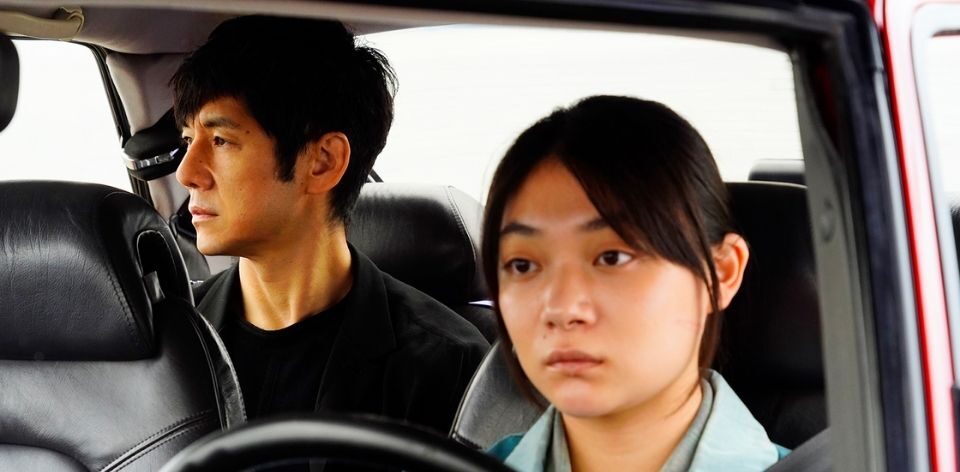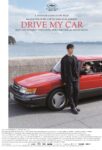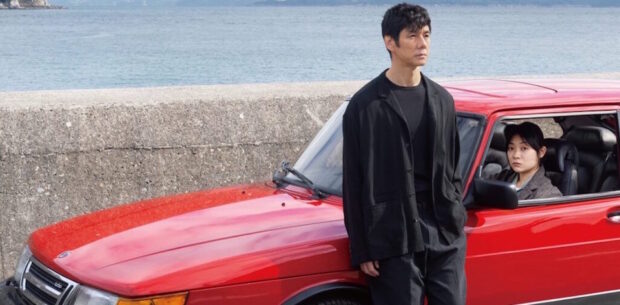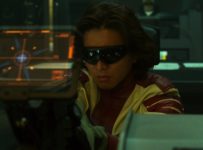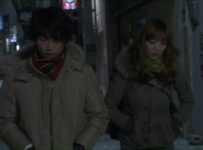It’s been a bumper couple of years for Ryusuke Hamaguchi and, along with Wheel of Fortune and Fantasy, this latest sprawling drama solidifies his reputation. Based on a short story by Haruki Murakami, DRIVE MY CAR (ドライブ・マイ・カー) lingers on every moment we spend with these flawed but fascinating characters.
The focus of Hamaguchi’s tale is Yusuke Kafuku (Hidetoshi Nishijima), a stage actor and director who specialises in multilingual productions of classic plays. In a happy marriage with screenwriter Oto (Reika Kirishima), their active sex life coincides with her reciting coitally induced stories, as if in a fugue. Yusuke later relates these back to Oto, who turns them into screenplays.
Two shifts occur almost simultaneously. Yusuke learns of his wife’s infidelity, but chooses not to tell her he knows. Soon after, he discovers that he is losing sight in one eye. Reducing his capacity to drive, he worries it will impact his creative process of running lines while driving. Then tragedy strikes.
In the process of rebuilding his life, Yusuke begins directing a new adaptation of Chekov’s Uncle Vanya. He casts Takatsuki (Masaki Okada), an actor of some talent who was also the man he caught cheating with his wife. Meanwhile, the company forbids him to drive, and hires taciturn driver Misaki (Toko Miura) to escort him around the Hiroshima locales.
DRIVE MY CAR is a long film. At just shy of three hours, it’s certainly not Hamaguchi’s longest film, with Happy Hour (317 minutes) and Intimacies (255 minutes) dwarfing this outing. Yet, like Happy Hour, it’s simultaneously — and perhaps contradictorily — much longer than it could have been and exactly the right length. The longer you spend with these characters, the longer you want to. Each passing moment reveals a little bit more of their pain and desires — and it’s kind of addictive.
As we move forward through time, Hamaguchi uses specific spaces to reveal truths. For all the tension that is ready to burst in the theatre scenes, it’s the bright red Saab 900 that becomes the space of revelations. As with filmmaker Abbas Kiarostami’s wandering cars, it’s within the slender red frame that we learn of the heartbreak behind Yusuke and Oto’s past, the past that Misaki is still running from, and hear the end of one of Oto’s stories that is typically entwined with sex.
Cinematographer Hidetoshi Shinomiya (Sasaki in My Mind, Liverleaf) frames the Setouchi region with a restrained grace. Even when not physically present Reika Kirishima’s voice is a constant narrator, with her taped version of Uncle Vanya acting both in parallel to the main story and a kind of meta Greek chorus of the growing turmoil. Even in this extended length, Hamaguchi can still surprise us with a Chekov’s gun going off in the third act.
“Those who survive keep thinking about the dead,” laments Yusuke, a notion both he and Misaki grapple with throughout the film. Yet what DRIVE MY CAR solidifies is Hamaguchi’s mastery of the living. For the three hours you spend in the orbit of these characters, you don’t simply observe so much as live their lives with them. This is Hamaguchi’s gift and in sharing it, he’s also delivered one of the best of the year.
2021 | Japan | DIRECTOR: Ryusuke Hamaguchi | WRITER: Ryusuke Hamaguchi | CAST: Hidetoshi Nishijima, Toko Miura, Masaki Okada, Reika Kirishima | DISTRIBUTOR: Bitters End, The Match Factory | RUNNING TIME: 179 minutes | RELEASE DATE: 12 November 2021 (SFF), 9 December 2021 (wide)

